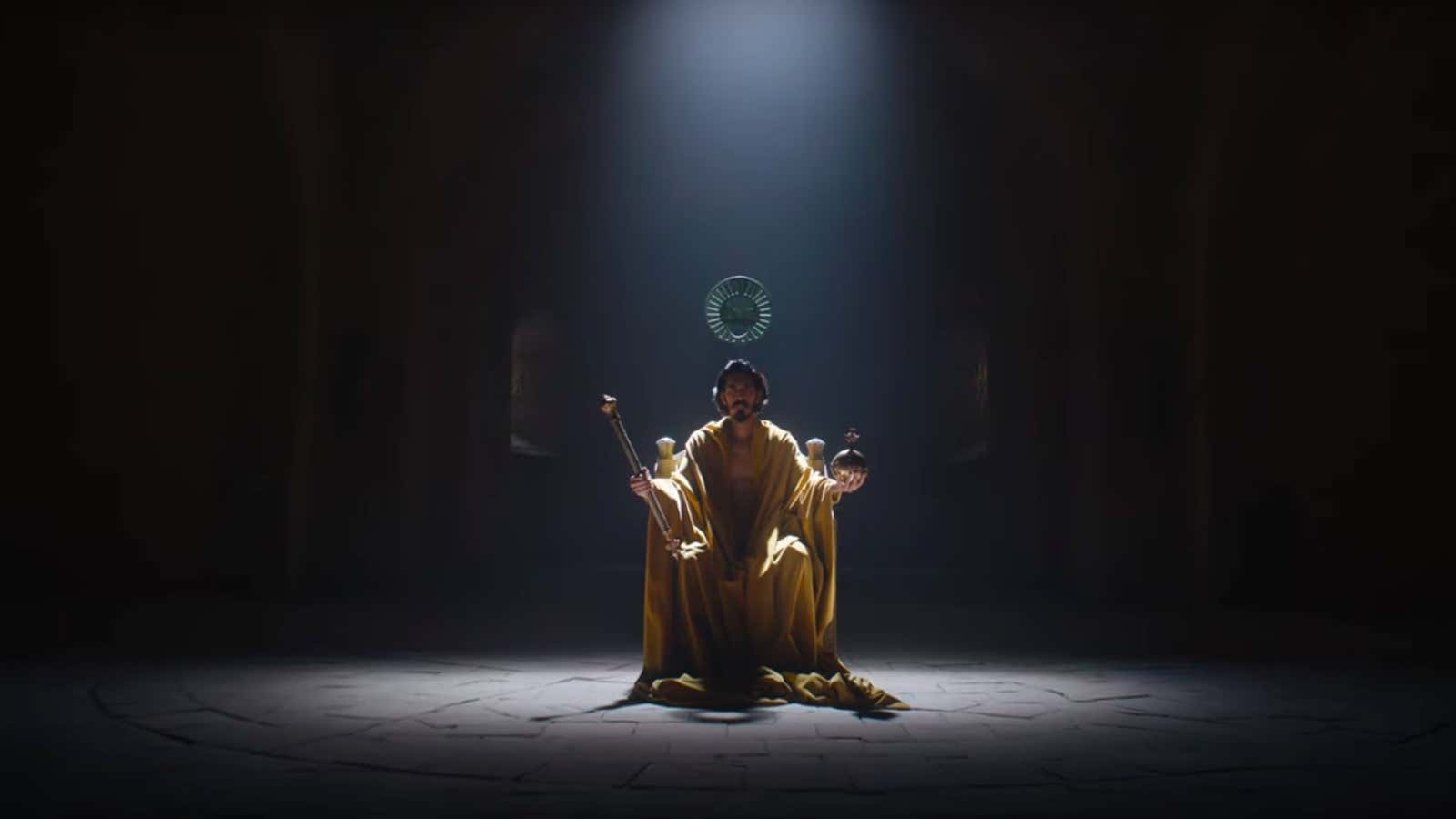The same blockbuster franchises from a handful of media empires suck up most of the oxygen in Hollywood. But there’s still plenty of originality if you know where to look. A24 is a good place to start.
The indie distributor released the first trailer for its upcoming medieval fantasy film, The Green Knight, to a rapturous response on social media today. Based on the Arthurian legend of Sir Gawain, the film leans into the story’s weirdness, unabashedly playing up its fantasy elements.
In short, The Green Knight looks far more daring than how most mainstream Hollywood studios would likely choose to adapt the same story:
A24 can afford to take risks like this, because the stakes are considerably lower than those for a major franchise. Disney’s Avengers: Endgame, for instance, made three times more money at the box office in its opening weekend than all of A24’s films grossed throughout all of 2019. They’re playing very different games.
But A24 is as good at its game as Disney is at building blockbusters. Founded in 2012, the company has quickly become the industry’s most reliable tastemaker. By championing a range of talented, diverse filmmakers (Greta Gerwig, Barry Jenkins, Ari Aster, the list goes on) and throwing the full weight of the company behind each of their original films, A24 is, in essence, the HBO of movies.
Its projects are widely seen as worth viewers’ time. Not all of the films impress, but the majority at least deserve a chance in the spotlight—and many succeed there. Last year’s thriller Uncut Gems has made $50 million at the US box office—not exactly Disney money, but still considerably more than most low-budget indie movies (it also sports a 93% score on Rotten Tomatoes). Films distributed by A24 have been nominated for three Academy Awards for Best Picture, winning once in 2016 with Moonlight.
The company has done as good a job branding itself as any company in Hollywood. Extremely popular with the borderline hipster cinephile crowd, A24 is now at the point where its many devoted admirers essentially do its marketing for it through word-of-mouth and—as with the reaction to The Green Knight trailer—on social media.
And A24 is not shy about maximizing its reputation. Its logo is shown at the beginning of all its film trailers. It sells branded apparel on its website with a decidedly vintage look, even though the company was founded less than eight years ago. Among its other lifestyle products are a The Lighthouse mens’ grooming set, complete with beard oil and a bar of soap in the shape of a mermaid, and a $75 silver Uncut Gems basketball, because why not.
Of course, A24 doesn’t actually make the movies, even if many of them do seem to share an unmistakable aesthetic (Quartz member exclusive). It just finances and promotes them. But the distributor deserves credit for generally making sound decisions.
Truly original films like Midsommar, The Farewell, The Last Black Man in San Francisco, and Eighth Grade (many of which are from relatively unproven directors) wouldn’t get the time of day at a major Hollywood studio. All of them were huge critical successes, if not necessarily financial ones. But their small budgets mean that they don’t always have to be. Neon, the indie distributor behind this year’s Oscar Best Picture winner, Parasite, is also winning with a similar strategy.
At a time of widespread media consolidation, a company working with total autonomy is increasingly rare. Even HBO, which was already a silo of the Time Warner entertainment behemoth, has now been swallowed up by AT&T, whose plans for the prestige cable network could risk damaging its brand. Offers to buy A24 from bigger companies will come along—if they haven’t already.
Apple has been rumored as a potential buyer for years. (A24 and Apple agreed to a deal in 2018 that would see the distributor produce some original films for the tech titan, though that has yet to bear any fruit.) If that happens, it would instantly give Apple more street cred as it looks to make its mark on Hollywood, but it would also potentially destroy what makes A24 A24. That’s the catch-22 for any company that looks to absorb A24: Being owned by “the man” will make A24 less like itself, and thus less enticing as an acquisition target.
